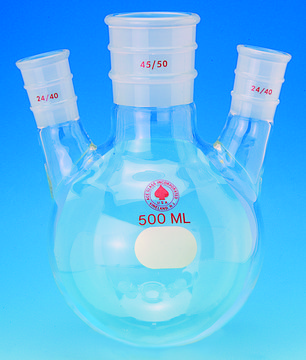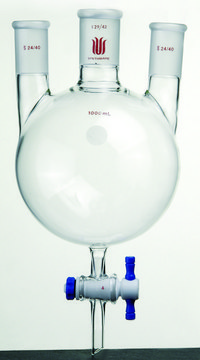48722
Gelatin from porcine skin
medium gel strength, suitable for microbiology
Synonym(s):
Gelatine, hydrolyzed collagen, collagen hydrolysate, gelatine hydrolysate
Sign Into View Organizational & Contract Pricing
Select a Size
Change View
1 EA
177,00 $
Recommended Products
biological source
Porcine
Quality Level
sterility
non-sterile
form
powder
quality
medium gel strength
packaging
bottle of 100 g
bottle of 500 g
ign. residue
≤2%
loss
≤15% loss on drying
color
light yellow
pH
4.0-6.0 (25 °C, 67 mg/mL in H2O)
Looking for similar products? Visit Product Comparison Guide
Related Categories
General description
Gelatin from porcine skin is generated from the acidic digestion of collagen and is referred to as type A. It is a hydrocolloid and is rich in glycine, proline, and hydroxyproline, which impart structural stability. It is synthesized from the alkaline digestion of collagen from porcine. Gelatin takes up a random coil structure after digestion from the triple helical collagen.
Gelatin is a heterogeneous mixture of water-soluble proteins of high average molecular masses present in collagen. Proteins are extracted by boiling the relevant skin, tendons, ligaments, bones, etc., in water. Type A gelatin is derived from acid-cured tissue, and Type B from lime-cured tissue.
The Bloom number, determined by the Bloom gelometer, is an indication of the strength of a gel formed from a solution of the known concentration. The Bloom number is proportional to the average molecular mass. Bloom numbers of porcine skin Gelatin vary from 90 to 300 g. This product has a gel strength of 180.
Gelatin is a heterogeneous mixture of water-soluble proteins of high average molecular masses present in collagen. Proteins are extracted by boiling the relevant skin, tendons, ligaments, bones, etc., in water. Type A gelatin is derived from acid-cured tissue, and Type B from lime-cured tissue.
The Bloom number, determined by the Bloom gelometer, is an indication of the strength of a gel formed from a solution of the known concentration. The Bloom number is proportional to the average molecular mass. Bloom numbers of porcine skin Gelatin vary from 90 to 300 g. This product has a gel strength of 180.
Application
Gelatin has been used in many applications, such as in coating cell culture plates to improve attachment of cells, in PCR to stabilize Taq DNA, as a blocking reagent in Western blotting, ELISA, and immunochemistry, and as a component of media for species differentiation in bacteriology.
Components
Gelatin is a heterogeneous mixture of water-soluble proteins of high average molecular masses, present in collagen. Proteins are extracted by boiling the relevant skin, tendons, ligaments, bones, etc. in water. Type A gelatin is derived from acid-cured tissue. Type B is derived from lime-cured tissue.
Caution
Dry gelatin, when stored in airtight containers at room temperature, will remain unchanged for many years. When heated at 100°C in the presence of air, it swells becomes soft and disintegrates to a carbonaceous mass with evolution of pyridine bases and ammonia.
Preparation Note
This product is derived from porcine skin. Gelatin is soluble in hot than in cold water. It is practically insoluble in most organic solvents such as alcohol, chloroform, carbon disulfide, carbon tetrachloride, ether, benzene, acetone, and oils. Manufactured by Gelita AG
Storage Class Code
11 - Combustible Solids
WGK
nwg
Personal Protective Equipment
dust mask type N95 (US), Eyeshields, Gloves
Choose from one of the most recent versions:
Already Own This Product?
Find documentation for the products that you have recently purchased in the Document Library.
Our team of scientists has experience in all areas of research including Life Science, Material Science, Chemical Synthesis, Chromatography, Analytical and many others.
Contact Technical Service





